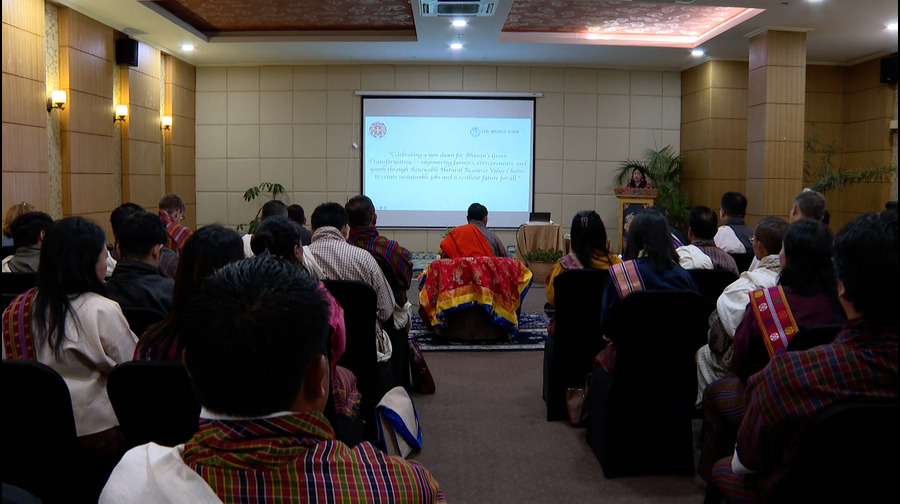
To boost Bhutan’s agriculture and rural economy, the agriculture ministry launched a new project today. Funded by the World Bank, the project worth around 35 million US dollars or roughly Nu 3bn, aims to add more value to the country’s Renewable Natural Resource sector and create more jobs. It is also expected to support the development of the Gelephu Mindfulness City.
The five-year project targets priority value chains such as dairy, citrus, potato and forest-based products. The agriculture ministry said that these commodities are prioritised to contribute in achieving the 13th Five Year Plan, and the goals of the agriculture and livestock ministry and the energy and natural resources ministry.
Leki Choda, Sr. Planning Officer, Policy and Planning Division, MoAL said, “We consider oranges, for that matter citrus and potato, as one of the significant export agricultural commodities, which will help the ministry in contributing and achieving the 13th plan target of contributing around Nu 50bn to the annual GDP of the country by 2029 and also to increase the agricultural export value to Nu 6bn by 2029.”
To implement the project, a project management unit is formed under the ministry.
“However, as we look into sort of beneficiaries that we are targeting for this particular project, we are not looking for whole of the farm household in the country across the board, but we are targeting to benefit largely the farmers prioritising in growing and doing agricultural works in the prioritised commodities of this particular project.”
Moreover, it is also the first project of the ministry focusing on wood based industries and wood value addition. Officials said that although Bhutan has large timber resources and around 69 per cent of forest cover, the actual economic potential of the forest resources in the country is not yet fully tapped.
Tashi Norbu Waiba, the Principal Forestry Officer from DoFPS said, “This is one of the projects which will actually help us to do so and then also increase our contribution to the GDP. Right now the GDP of the forest sector is somewhere less than 3 per cent. So, with this project, we hope that the forest sector will be able to contribute more to the GDP through wood value additions and also engagement of our private sectors more effectively.”
The project also aims to contribute to the development of the Gelephu Mindfulness City.
He said, “As we know that most of the construction that will happen in the new city is going to be mostly from the locally sourced materials, especially timber. So, this project will be one of the projects which will help us to actually meet such demands and then to also produce very high quality forest products that could be used in the new upcoming Gelephu Mindfulness City.”
Tomás Rosada, the Practice Manager for South Asia, World Bank said, “What we would like to see from this project is alliances between agri-entrepreneurs and primary producers that transforms, brings value addition, enhances market access, generates jobs and generates wealth for many of those who work in the agri-food system in Bhutan.”
The project aims for productive partnerships between producers and buyers. Constant project management, monitoring, and evaluation also promises to ensure effective implementation of the project, track its impact, facilitate learning exchanges, and support stakeholder engagement.
Devika Pradhan
Edited by Kipchu








